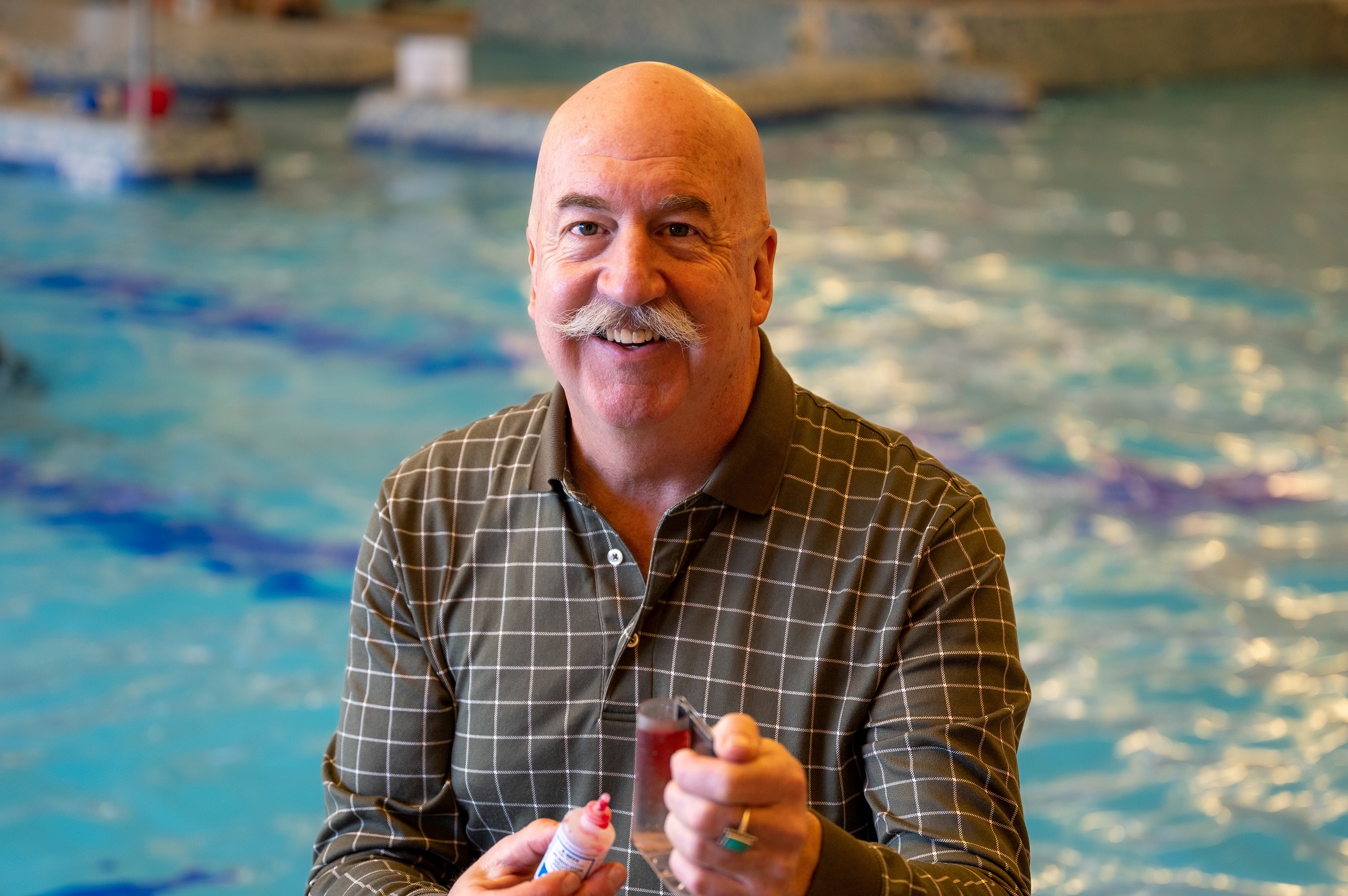No matter the industry, effective standards hinge on the gathering of information and opinions from people of varying perspectives. That’s why the Pool & Hot Tub Alliance has been glad to have the input of individuals such as John Mason.
Fortunately, the registered environmental health specialist for Deschutes County (Ore.) has been happy to oblige, reviewing drafts for PHTA standards pertaining to public pools, and offering input. Though not the only health official to participate, he is one of the most visible, now presenting to the industry at aquatics events.
In Deschutes County, Mason is the only inspector who handles pools, among other types of venues. He was assigned the gig early on when his boss found out that he was a fishery biologist, figuring it’s all water. “So when the pool guy retired, [my boss] said, ‘Take over that program. Start getting trained before [he] leaves, and figure it out and run with it.’”
He immediately took a CPO course. Even with a history of swimming and playing water polo as a student, he didn’t realize all that went into pool operation.
“That was eye-opening,” he says.
Throughout the years, he has continued his formal education. In addition, he worked with some local pool builders, who showed him around sites and answered questions. This in addition to more than 20 years inspecting sites.
Shifting perceptions
Mason has to fight against the picture of inspectors as being intimidating, cold and bureaucratic.
“There’s this perception that health inspectors just work off a checklist,” Mason says. “It’s a whole lot more than that. We have to walk into the situation, ask questions, assess what’s going on, what happened before we got there and what happens after. We have to be able to diagnose any kind of violation of the law and then educate about it.”
To help him get a sense of how things are run when he’s not there, Mason relies on building trusting relationships with the operators in his area. “That is a crucial message for health inspectors around the world,” he says. “I don’t want to be the cop. When you have a pool question, I want you to come to me.”
So many pool operators never intended to do this work, and they often don’t receive proper training.
“Pool operators tend to inherit the job,” Mason says. “Most of my pools are apartment, hotel or HOA pools. The maintenance person tends to get hired to repair carpets, patch holes in walls, and rewire lamps. When they get there, the boss says, ‘Oh, and you’re in charge of the pool and spa, too.’ And it’s the deer in headlights — they have no knowledge about that.”
But the operators are vested with the responsibility of keeping people safe from pathogens as well as drowning hazards.
Instruction first
Mason views himself as an educator as much as anything else.
“Ninety percent of the job is education,” he says. “I’m not adding the chlorine to the pool. I have to educate the people who are doing that so they know how to do their job, so they’re doing it to the best of their abilities and protecting public health.”
To help new pool operators in his area, he has begun teaching a ½-day class on the basics. This takes a step back to the most fundamental information, especially to help those who found themselves managing pools without intending to.
“While CPO training is great, it’s not a beginner class,” Mason says. “So I explain, ‘This is how your filter works, this is when you backwash; this is why we want the pH to be low; and clean the inside of the skimmer because that’s where pseudomonas hides.”
He also tries to support their success by encouraging builders to design the pools for easy operation. Knowing that the maintenance tech must live with the final product after the builder’s finished, and having seen some of the tough situations they encounter, he acts as the pool operator’s advocate.
“If we can make the pump room a little bigger, I’m going to try to push for that,” he says. “If we can get threaded quick disconnects around the equipment, then when it’s time to change out the pump or filter, you don’t have to cut out the pipe, you just unthread it, take it out and pop in a new one.”
Mason provides a vital voice, especially in the area of drafting pool standards. He encourages fellow health officials around the country to do the same.
“I explain that PHTA really needs that public health perspective when writing these rules, so if you volunteer to do this, you will meet some smart people, expand your knowledge of pools and pool operations, and you will become a better resource to your community – and you may have a hand in writing pool codes that will live on way beyond you.”



